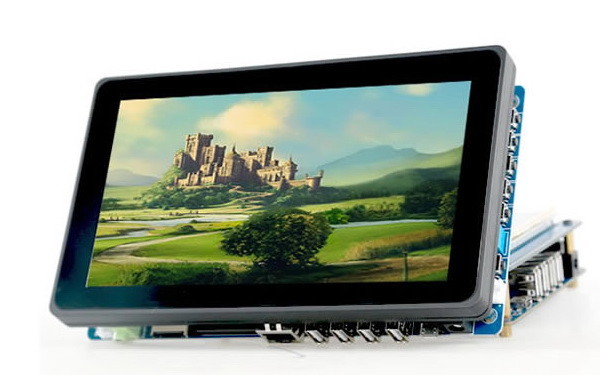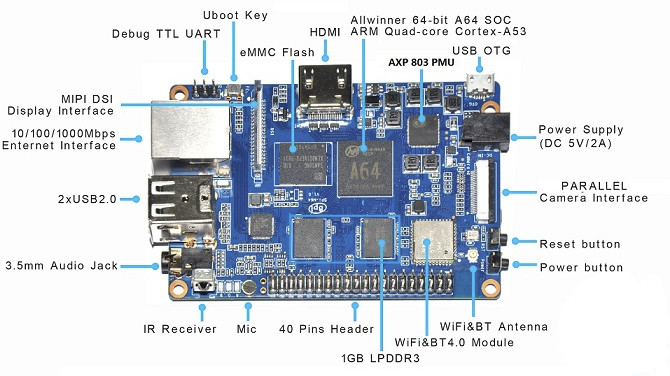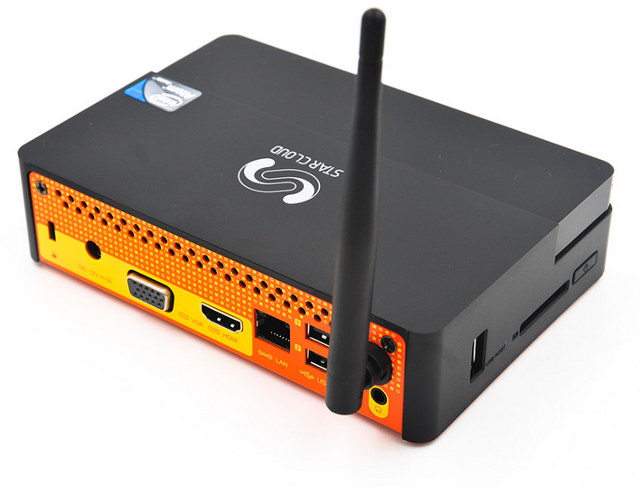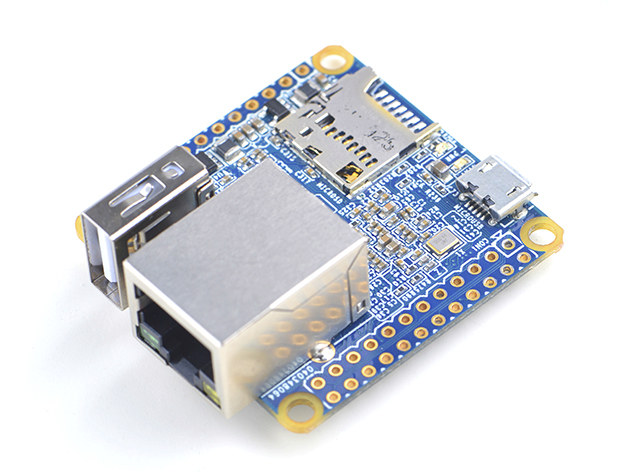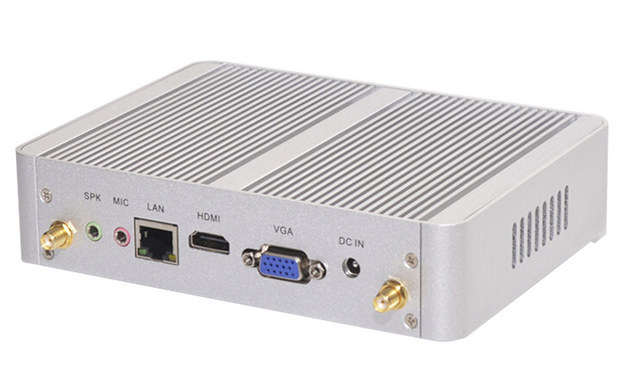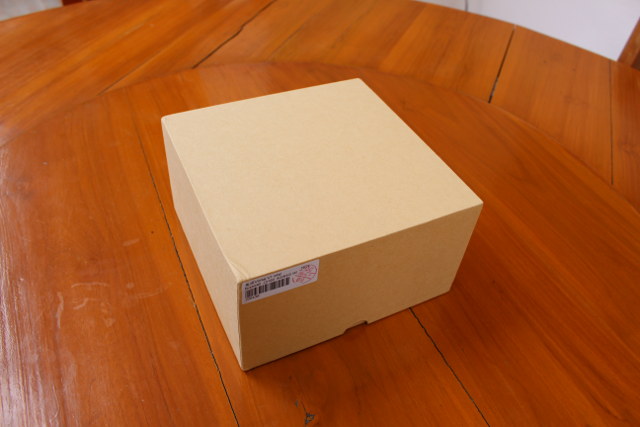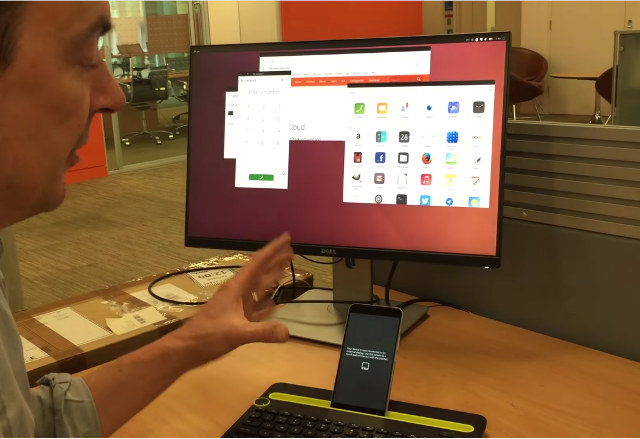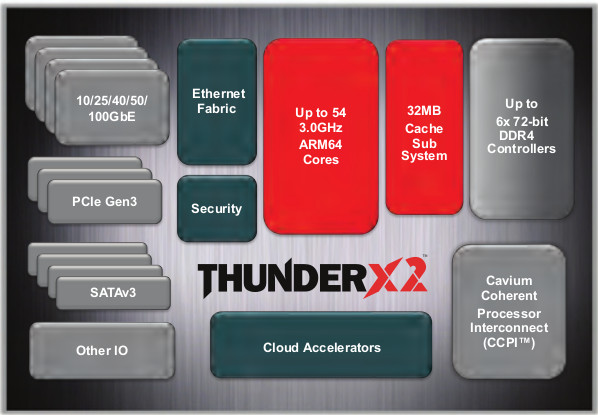For some reasons, Samsung S5P4418 and S5P6818 quad and eight Cortex A53 core processors – likely made by Nexell – have been quite popular with embedded systems companies based in China. So after Graperain, Boardcon, and FriendlyARM, there’s at least one another company offering solutions with either processor, as sModule, a subsidiary of CoreWind, has now launched systems-on-module, single board computers, and development kits with the 64-bit ARM SoCs. In this post, I’ll cover one of their development kit including their CORE6818 CPU module, a baseboard, and an optional 7″ capacitive touch display.. sModule SBC-x6818 development kit specifications: CORE6818 CPU module SoC – Samsung S5P6818 octa-core ARM Cortex A53 processor @ 1.4 to 1.6 GHz with Mali-400MP 3D GPU System Memory – 1GB DDR3 (2GB optional) Storage – 8GB eMMC Flash (4 & 16GB optional) Ethernet – Realtek RTL8211E Gigabit Ethernet transceiver 180-pin “interface” to baseboard Power Supply – 3.7 […]
BPI-M64 Development Board is the first 64-bit Banana Pi Board
Sinovoip has gone on the Allwinner A64 and 64-bit ARM bandwagon, announcing a Pine A64+ competitor, with Banana Pi BPI-M64 (or just Banana Pi M64) with 2GB RAM, 8GB eMMC flash, Gigabit Ethernet, and more. Banana Pi BPI-M64 board specifications: SoC – Allwinner A64 quad core ARM Cortex A53 processor @ 1.2 GHz with Mali-400MP2 GPU System Memory – 2GB DDR3 Storage – 8GB eMMC flash (16, 32 and 64GB options), micro SD slot up to 256 GB Video Output / Display interface – HDMI 1.4 up to 4K resolution @ 30 Hz, MIPI DSI interface Audio – HDMI, 3.5 mm headphone jack, built-in microphone Connectivity – Gigabit Ethernet + 802.11 b/g/n WiFi & Bluetooth 4.0 (AP6212) USB – 2x USB 2.0 host ports, 1x micro USB OTG port Camera – MIPI CSI interface (which I guess you support parallel cameras via some kind of bridge) Security – Hardware security […]
Star Cloud PCG03U Bay Trail Ubuntu mini PC with 2GB RAM, 64GB Storage Sells for $90
Last year, I reviewed MeLE PCG03 mini PC with Windows 8.1. and later upgraded it to Windows 10, but the company has now started to launch Ubuntu based TV sticks and mini PCs, under their new Star Cloud brand, with for example Star Cloud PCG02U TV stick, and now they’ve just launched Star Cloud PCG03U running Ubuntu 14.04 for $89.59 shipped on Aliexpress. Star Cloud PCG03U specifications: SoC – Intel Atom Z3735F “Bay Trail” quad core processor @ 1.33 GHz / 1.83 GHz) with Intel HD graphics System Memory – 2 GB DDR3L Storage – 64 GB eMMC + SD card slot (up to 512 GB) Video Output – HDMI 1.4, and VGA Audio I/F – HDMI, 3.5mm earphone jack Connectivity – 10/100M Ethernet, 802.11 b/g/n Wi-Fi up to 300 Mbps, and Bluetooth 4.0 USB – 3x USB 2.0 host ports (The specs mention 1x USB 3.0 port, but it […]
Smaller & Faster than Raspberry Pi Zero: Meet NanoPi NEO ARM Linux Development Board
Raspberry Pi Zero has two noticeable attributes compared to other Raspberry Pi boards: it’s smaller and it’s cheaper. FriendlyARM has now designed another model for their NanoPi family, that about 12% smaller, although not quite as thin at all due to its Ethernet jack and USB connector, and much faster than Raspberry Pi Zero, with NanoPi NEO board powered by Allwinner H3 quad core processor. NanoPi NEO specifications: SoC – Allwinner H3 quad core Cortex A7 @ 1.2 GHz with an ARM Mali-400MP2 GPU up to 600 MHz System Memory – 256 or 512 MB DDR3 Storage – micro SD card slot Connectivity – 10/100M Ethernet USB – 1x USB 2.0 host ports, 1x micro USB OTG port, 2x USB via headers Expansion headers 24-pin header with I2C, 2x UART, SPI, PWM, and power signals 12-pin header with 2x USB, IR pin, microphone and Line OUT signals Debugging – 4-pin […]
Partaker B4 Intel Celeron N3150 Barebone mini PC Sells for $131
This week-end I received Vorke V1 mini PC powered by Intel Celeron J3160 processor, and with upgradable memory, storage and WiFi as explaining in the first part of the review, and with a $160 price tag after coupon I found it to be pretty good value (Normal price is $200). But still, one person commented that it was too expensive, while another mentioned that some people may prefer to buy extra components such as SO-DIMM RAM, mSATA SSD, and wireless modules locally in order to benefit from a local warranty. So I went on aliexpress to find barebone mini PCs based on Intel Celeron J3160 processor, and I had no luck probably because the processor is relatively recent, so I refocused my search on Intel Celeron N3150 processor which has roughly the same performance, and the one of the cheapest options I could find was Partaker B4 mini PC selling […]
Vorke V1 Braswell mini PC Unboxing and Teardown
Vorke V1 is a Braswell mini PC pre-loaded with Windows 10, powered by an Intel Celeron J3160 quad core with 4GB RAM, 64 GB internal storage, and two important features if you want to use it as a desktop PC: support for internal 2.5″ hard drive, and dual display support via HDMI and VGA ports. GeekBuying sent me a sample for review, and I’ll do a two part review, starting with pictures of the device, and its internal, before publishing the second part testing the performance, stability and features of the mini PC. Vorke V1 Unboxing There’s not much to say about the package, as it’s just a bland carton box with a sticker with Vorke V1 name, processor and memory info. The mini PC ships with a 19V/2.1A power supply and a power cord, as well as a mounting bracket and 5 screws for 2.5″ SATA SSD or HDD. […]
Meizu Pro 5 Ubuntu Edition Now Supports Desktop Mode via Wireless Display
Meizu PRO 5 Ubuntu Edition is a powerful smartphone running Ubuntu based on Samsung Exynos 7420 octa-core processor, 3GB RAM and 32 GB internal store. However, the main disappointment at the time of the launch was that it did not feature any physical video output interface, so convergence (desktop mode) was not available at the time, but Canonical has now implemented wireless display support with OTA11, and the phone will switch to desktop mode when connected to a WiDi adapter. That’s what the company had to say about the release: The latest Over-The-Air update has landed and this is a special one. We’ve introduced wireless display capabilities, which means that you can enjoy the full Ubuntu PC experience running from the latest Ubuntu smartphone, the Meizu Pro 5. And the best bit is, it will be available for all future Ubuntu smartphone and tablet devices (with supporting hardware)! The Product […]
Cavium introduces 54 cores 64-bit ARMv8 ThunderX2 SoC for Servers with 100GbE, SATA 3, PCIe Gen3 Interfaces
Cavium announced their first 64-bit ARM Server SoCs with the 48-core ThunderX at Computex 2014. Two years later, the company has now introduced the second generation, aptly named ThunderX2, with 54 64-bit ARM cores @ up to 3.0 GHz and promising two to three times more performance than the previous generation. Key features of the new server processor include: 2nd generation of full custom Cavium ARM core; Multi-Issue, Fully OOO; 2.4 to 2.8 GHz in normal mode, Up to 3 GHz in Turbo mode. Up to 54 cores per socket delivering > 2-3X socket level performance compared to ThunderX Cache – 64K I-Cache and 40K D-Cache, highly associative; 32MB shared Last Level Cache (LLC). Single and dual socket configuration support using 2nd generation of Cavium Coherent Interconnect with > 2.5X coherent bandwidth compared to ThunderX System Memory 6x DDR4 memory controllers per socket supporting up to 3 TB RAM in […]


